Owoyele Micheal Damilola, is the Lagos State Wheelchair Basketball Captain and a Graduate of Childhood Education and Social Studies at the Tai Solarin University of Education, Ijebu Ode, Ogun State. In this interview with Oluranti Bakare, a part-time Master’s Student of Mass Communication at the University of Lagos, Owoyele Michael shared his inspiration to join sports as a person with disability and also shares some of his exploits as a basketball. Read the Excerpts below;
Question: Were you born as a physically challenged child?
Response: According to my parents, the issue started after my 1 year birthday when I fell ill and was taken to the hospital for treatment but the nurse wrongly injected my legs that made me unable to work, but after several efforts by my parents I was able to get back on one leg.
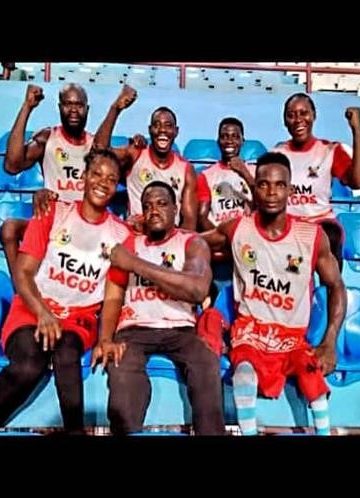
Question: Did your disability stop you from getting an education?
Response: I know the value of education I did not allow my predicament to stop me from me going to school. I am proud to say I attended Ladi Lak Institute Primary School before proceeding to Lagos City Senior College, Sabo, Yaba both in Lagos and then had my degree at Tai Solarin University of Education, Ijebu-Ode, Ogun State where I studied Childhood Education and Social Studies.
Question: Why did you decide to participate in sports as a person with disability?
Response: The interest in sports began from my Father who was a former footballer, which prompted me to play street football with some of my friends and siblings. I loved football to the extent that I started using my hand where others used their legs or I served as a goalkeeper.
Question: How rigorous was it engaging in sports despite being physically challenged?
Response: My inspiration and strength to carry on came from a popular aphorism that says ‘’the extra mile you go in life distinguishes between Success and Failure’’. Yes! It was very tough because I began as a footballer but after a while, I switched to Table Tennis and now, Wheel Chair Basketball.
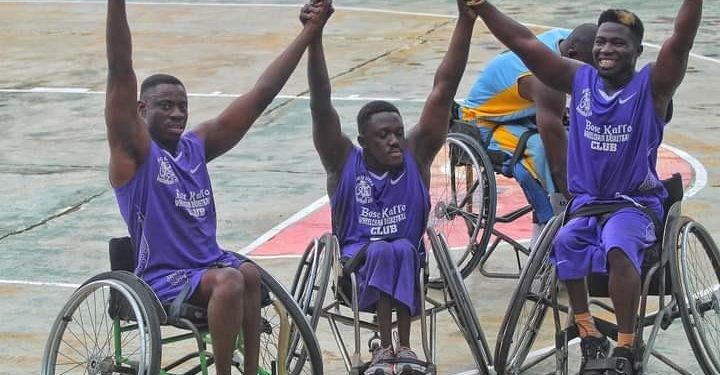
Question: Please share your experiences traversing from football to para-table tennis and wheel chair basketball?
Response: honestly do not want to know what my eyes say during this my sports sojourn because I ventured into football and could only play with the hand and not the legs because of my disability. Thereafter, Coach (real name) whom we all referred to as Coach Something, lured me into Para Table Tennis before personally picking me to play Wheel Chair Basketball at the National Institute of Sports Basketball Court, National Stadium, Surulere, Lagos. I have to conclude by saying Table Tennis was slightly easy as an indoor game but my biggest difficulty came from Basketball as I had to first understand how to use the Wheel Chair to play Basketball. And the resultant effect was that my hands got peeled owing to the absorbing nature of the sport.
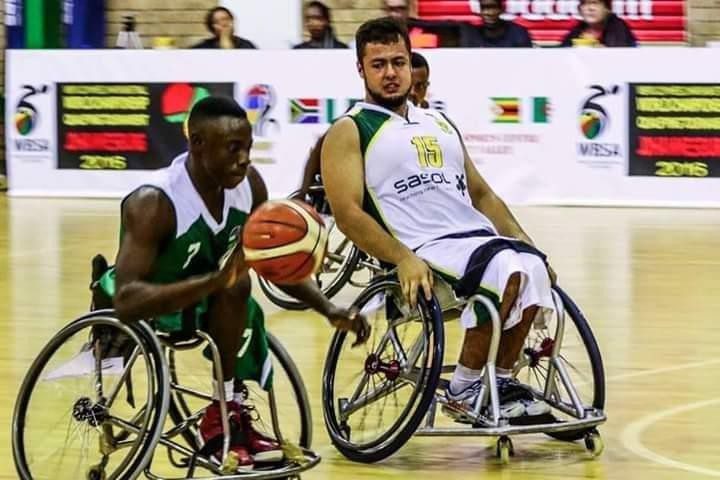
Question: What are some of the challenges of being a physically challenged athlete?
Response: The challenges are so numerous and it ranges from; Lack of financial support to insufficient advocacies to support people living with Disabilities and making them serve as brand ambassadors, inadequate training facilities and Equipment just to mention a few.
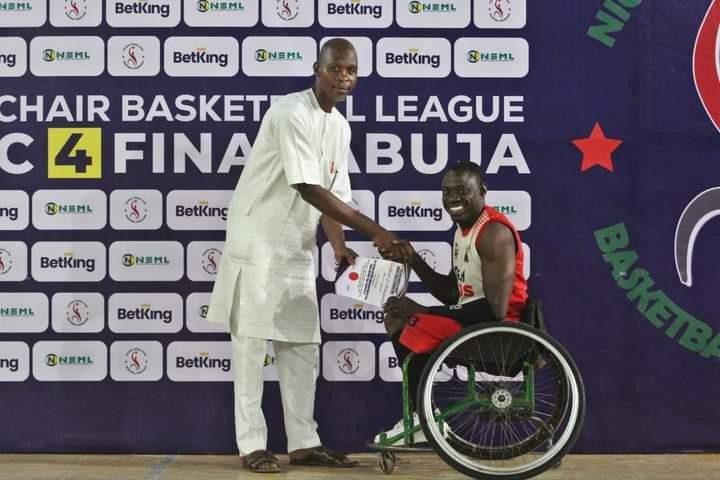 Question: Why do we have few former physically challenged athletes operating as coaches or administrators?
Question: Why do we have few former physically challenged athletes operating as coaches or administrators?
Response: Before now, the story was not palatable at all, it was a clear state of neglect, what obtained then was that ex athletes who have served the country meritoriously cannot become Coaches or Sports Administrators. However, I can say categorically that the narrative is gradually changing. For instance I enrolled last year at the National Institute for Sports (NIS) and today i am proud to say I, Owoyele Micheal Damilola is the first Physically Challenged Certified Sports Administrator and my story has inspired other physically challenged athletes to enrol at the NIS.
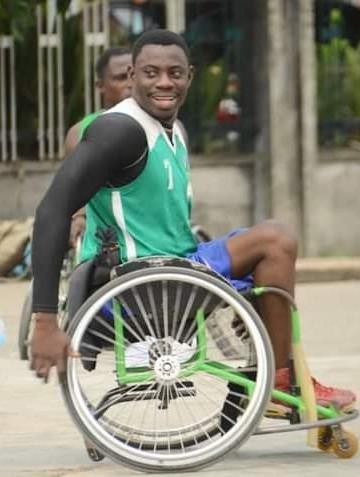
Question: How long have you been the Lagos state wheel chair basketball athlete and what are some of your sporting achievements?
Response: I recall joining Wheel Chair Basketball in 2011 and by 2018, the team voted me as their Captain, a position I occupy till date. And in the last 13 years, I have won several honours including winning Silver in South Africa back in 2018 when the team represented Nigeria, as well as the 1st Wheel Chair Basketball League in Abuja.
Question: What plans do you have in place to raise the next generation of physically challenged athletes?
Response: They say a success without a successor is no success, hence, my desire with that of my colleagues, is to nurture emerging talents through coaching at schools of children living with disabilities. But our major challenge is funding as we would not achieve anything if the financial support is not available. And the implication of this lack of support is that the ‘’Japa Syndrome’’ that has affected most Nigerians would soon cripple sports and by extension, our physically challenged athletes who are on the verge of representing other organized countries at the Paralympics Games.
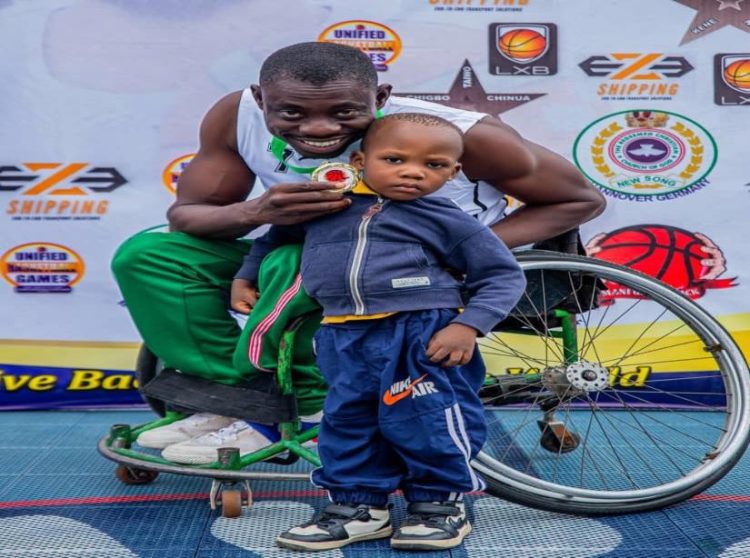
Question: What advice do you have for those in position of authority regarding support for physically challenged athletes?
Response: In as much as we want to appreciate them for their support, I must say it is inadequate and I would appreciate if the following things can be quickly addressed as a matter of urgency;
Giving us a level playing ground; Getting us employment because we are employable; Designing ramps in places for easy access; Providing us with standard facilities, equipment and training grants; and Sending some of our coaches for refresher courses
In closing the importance of funding Physically Challenged Athletes cannot be overemphasized as we have seen over the years that the number of medals won at the Olympics by Able Bodied Athletes is a far cry to that of the Physically Challenged Athletes. Based on the aforementioned, I am appealing to Government Officials, Policy Makers, Corporate Bodies, Organizations and Individuals to see Physically Challenged Athletes not as Liabilities or Beggars but as Assets.
This exclusive interview was conducted by Oluranti Bakare, a Part Time MS.C Student of Mass Communication at the University of Lagos, as part of a training on Disability Reporting facilitated by Blessing Oladunjoye, Publisher of BONews Service.
